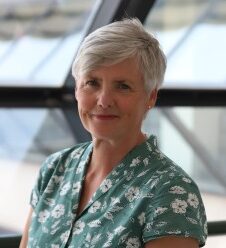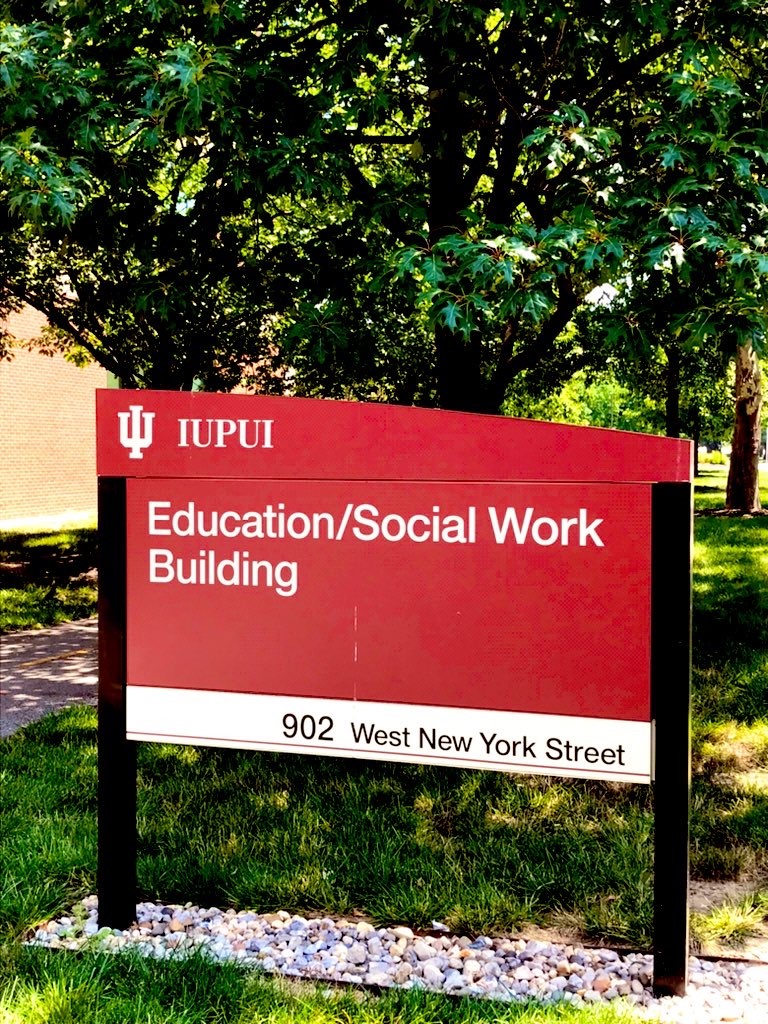NALDIC Executive member Naomi Flynn is currently undertaking a research project in Indiana, USA, to explore the implementation of a teaching approach known as Enduring Principles of Learning, with a view to learning what it might have to offer here in the UK. We will be hearing from Naomi on a regular basis over the next few months though a series of “Letters from Indiana”. Here is her first missive, describing the background to her visit and what she hopes to learn from it.

In 2019 I wrote a NALDIC blog about the Enduring Principals of Learning – a pedagogical approach to teaching diverse learners pioneered in the US – and promised that my 2019 report would not be the last you would hear of it. Fast forward through the delays of the pandemic and I am here – seemingly against all the odds – in the city of Indianpolis, for a three-month long Fulbright-funded project to find out more. I had intended calling my blogs Letters from America but decided that it is meaningless to generalise about any aspect of life in a country as vast as the US. So, Letters from Indiana it is.
To recap my reasons for wanting to tell a NALDIC audience about The Enduring Principles of Learning (EPL) you can read my earlier blog here. The Enduring Principles of Learning were developed by Professor Annela Teemant of the School of Education at Indiana University-Purdue University Indianapolis (IUPUI), and it is this great lady who is kindly hosting my project which runs through to the end of October. I am here to evaluate to what extent and how I can adapt this approach to both professional learning and assessment of teachers’ practice in order that it can work in England. My reasons for wanting to do this are that: this approach has measurable success in raising the academic outcomes of all pupils, but particularly those who are multilingual learners (MLLs); it is about changing practice and mindset in ways that transcend curricula and avoid recourse to expensive commercially branded schemes; I have already piloted the approach with one school of 98% MLLs and I need to understand more before I scale up to work with more schools in 2022.

To summarise their purpose, the EPL are a set of principles of practice that together drive intentionally dialogic teaching through which the teacher raises the level of pupil talk and learner autonomy in the classroom. Moreover, they demand that the teacher situates children’s learning opportunities in contextualised activity design that challenges inequities and promotes social justice. They are like the dialogic practice proffered by English academics Alexander and Mercer, but they go further in that they embody the ‘armed love’ described by Freire; they are a liberating pedagogy.
What I find exciting about them is that they are highly aspirational but also very practical. Each principle has a clear identity as a classroom strategy, and the documentation around them describes how teachers’ practice might embody them at emerging, developing and enacting levels. The goal is to develop teachers’ practice so that they are using multiple principles together at an enacting level.
| Joint Productive Activity (JPA) | Teacher and students producing together. |
| Language and Literacy Development (LLD) | Developing language and literacy across the curriculum |
| Contextualisation (CTX) | Making meaning – connecting school to students’ lives |
| Challenging Activity (CA) | Teaching complex thinking |
| Instructional Conversation (IC) | Teaching through conversation |
| Critical Stance (CS) | Teaching to transform inequities |
| Modelling (M) | Learning through observation |
| Student Directed Activity (SDA) | Encouraging student decision making |
In my research I am working with three elementary schools in one school district of Indianapolis. Children in the schools are largely from African American or Latino/Hispanic families, but there are also a number from Asian or Pacific Island backgrounds. Thus, the schools are ethnically, culturally and linguistically rich and, in recognition of this, the District Superintendent has chosen to adopt the Enduring Principals of Learning as a pedagogical tool that is used by all schools. She and her team have been working closely with my colleague Professor Teemant for several years and are now at a point where the schools are working to embed EPL at grass roots level, rather than relying on on-going input from IUPUI. It is this that interests me most. How do we take a model for teaching that we know works when academics work alongside schools to launch it, but sustain that change and empower schools to become agents of change for the long term? My three schools are each at different stages in adopting the EPL and thus very interesting for me to compare. Schools started back here on August 3rd and are being remarkably accommodating letting me visit weekly as they battle a second school year with COVID; I am beyond grateful to them.
In my forthcoming letters I will share with you insights from my classroom observations and interviews, and reflect on what we in the UK might take from the practice of these generous US teachers.


